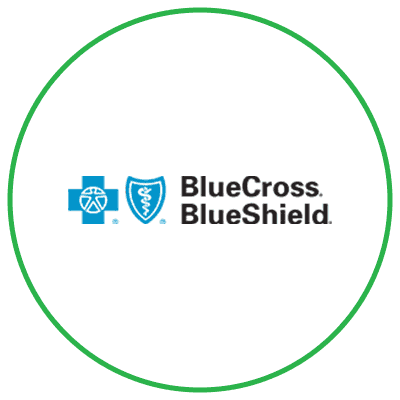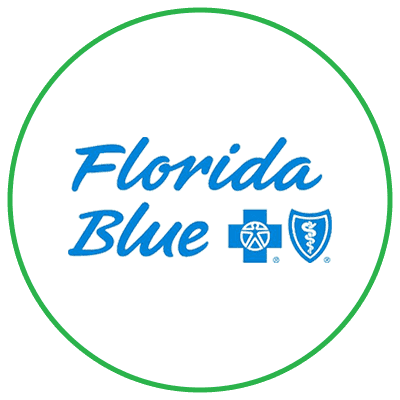
Anxiety Treatment in Macon
Proven Therapy Programs for Anxiety Disorders in Georgia
From profound emotional, social, and professional setbacks to struggles that impact your ability to handle the demands of daily life, anxiety can manifest in a multitude of ways. But regardless of what anxiety looks like from person to person, one thing is clear: battling anxiety can feel like an uphill battle. Fortunately, help is available at Georgia Recovery Campus.
As one of the region’s leading treatment programs, we’ve created a successful mental health treatment program designed to help folks struggling with issues like anxiety. From our state-of-the-art anxiety treatment center in Macon, we offer an array of treatment plans, programs, and therapies that are evidence-based, effective, and fully customized to each client’s individual goals.
Struggling with anxiety and wondering where to turn for help? Discover how our proven anxiety treatment in Macon, Georgia can support your path to recovery. Call Georgia Recovery Campus today at (478) 216-1110 or contact us online to get started!

We Accept Most Major insurances
Understanding Anxiety
Anxiety is a natural human response to stress or danger, often referred to as the body's "fight or flight" mechanism. While occasional feelings of anxiety are normal, persistent and excessive anxiety that interferes with daily life may indicate an anxiety disorder. These disorders can manifest in various ways, including:
- Generalized Anxiety Disorder (GAD): GAD is characterized by persistent and excessive worry about a range of everyday concerns, including work, finances, health, and relationships. Individuals with GAD often anticipate disaster and have difficulty controlling their worry, even when there is little or no reason for concern. The worry may accompany physical symptoms such as muscle tension, fatigue, irritability, and difficulty concentrating. Despite their efforts to relax, individuals with GAD may find it challenging to shake off their concerns, leading to ongoing distress and impairment in daily functioning.
- Panic Disorder: Panic disorder is marked by recurrent, unexpected panic attacks, which are sudden episodes of intense fear or discomfort that reach a peak within minutes. Panic attacks can occur unexpectedly or in response to specific triggers. They may involve palpitations, sweating, trembling, shortness of breath, chest pain, nausea, and a sense of impending doom or loss of control. Individuals with panic disorder often live in fear of experiencing another panic attack and may avoid situations or environments where an attack could occur, leading to significant disruptions in their lives.
- Social Anxiety Disorder: Social anxiety disorder, also known as social phobia, is characterized by an intense fear of social situations and interactions, particularly those involving scrutiny or evaluation by others. Individuals with SAD may fear being judged, embarrassed, or humiliated in social settings, leading to avoidance of social gatherings, public speaking, or other activities where they feel exposed. Physical symptoms such as blushing, sweating, trembling, and rapid heartbeat may accompany social anxiety, further exacerbating the individual's distress and self-consciousness.
- Phobias: Specific phobias are intense, irrational fears of specific objects, situations, or activities. These fears can significantly impact daily functioning and may lead to avoidance behaviors. Common specific phobias include fear of heights (acrophobia), fear of flying (aviophobia), fear of animals (zoophobia), fear of needles or medical procedures (trypanophobia), and fear of enclosed spaces (claustrophobia).
- Obsessive-Compulsive Disorder (OCD): OCD is characterized by intrusive, unwanted thoughts or obsessions, which lead to repetitive behaviors or rituals known as compulsions. Individuals with OCD may feel compelled to perform rituals to alleviate anxiety or prevent perceived harm. Common obsessions include fears of contamination, harm from oneself or others, or a need for orderliness. Compulsions may involve repetitive hand washing, checking, counting, or arranging objects in a specific manner.
- Post-Traumatic Stress Disorder (PTSD): PTSD can develop after exposure to a traumatic event such as combat, natural disasters, physical or sexual assault, or some other traumatic incident. Symptoms may include intrusive memories or flashbacks of the traumatic event, avoidance of reminders of the trauma, adverse changes in mood or cognition, and heightened arousal or reactivity. Individuals with PTSD may experience intense anxiety, nightmares, hypervigilance, and emotional numbness.
- Separation Anxiety Disorder: Separation anxiety disorder typically begins in childhood and involves excessive fear or anxiety about separation from attachment figures, such as parents or caregivers. Children with separation anxiety may experience distress when anticipating separation or when separated from their loved ones. Symptoms may include recurrent nightmares about separation, physical complaints (e.g., headaches, stomachaches) when separation is imminent, and reluctance or refusal to attend school or other activities without a parent or caregiver present.
- Specific Phobias: Specific phobias are intense, irrational fears of specific objects, situations, or activities. These fears can significantly impact daily functioning and may lead to avoidance behaviors. Common specific phobias include fear of heights (acrophobia), fear of flying (aviophobia), fear of animals (zoophobia), fear of needles or medical procedures (trypanophobia), and fear of enclosed spaces (claustrophobia).
Symptoms of Anxiety


Why Choose Georgia Recovery Campus?
-
TransparencyWe understand how difficult recovery is. We work one on one with you every step of the way to ensure we are helping you make the necessary changes to obtain the life you deserve.
-
Person-FocusedWhen you come to our facility, you are not only getting a beautiful campus and quality services, but you are also getting a team who truly cares about your recovery.
-
Top-Class Recovery TeamOur dedicated, experienced, and compassionate team of experts is here for you every step of the way. We have the tools, resources, and knowledge to help you on your journey.
-
Customized TreatmentAt Georgia Recovery Campus we treat the entire mind, body, and spirit. When you come to us, we work one on one with you to select the track that would be most beneficial to you and your goals.




